Living in an RV presents its own set of unique challenges. Challenges like having limited space and dealing with routine RV maintenance. With winter upon us, you’re probably wondering if you can live in an RV through the winter.
You can live in an RV during the winter. Here are some precautions to take:
- Choose a well-insulated RV
- Prepare your plumbing for winter
- Bring warm clothing and blankets
- Make sure your heater is in working order
- Carry emergency supplies
- Watch out for carbon monoxide
- Keep your RV dry
- Know how to drive in winter conditions
In this article, we will explore the benefits and challenges of living in an RV during winter and provide tips and recommendations for anyone considering this lifestyle.
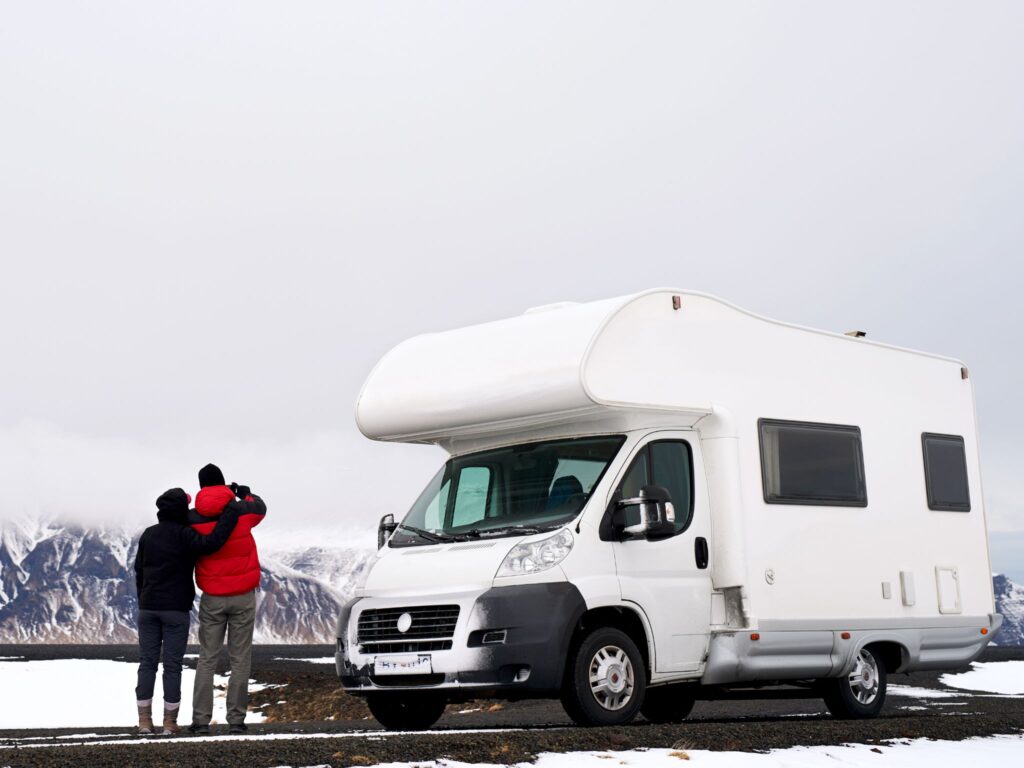
Benefits of Living in an RV in Winter
If you love the idea of adventure and mobility, living in an RV during winter can be an appealing option. Living in an RV during winter is a unique and exciting way to experience the season while satisfying your sense of adventure and independence.
Lower Living Costs
For many people, the biggest incentive to live in an RV in winter is lower living costs. Since RVs are relatively small, they require less energy to heat up and maintain a comfortable temperature. This means you will save money on heating costs compared to living in a larger home or apartment.
Additionally, living in an RV gives you the flexibility to move around and park in different locations. That way, if the rent goes up, you move your rig.
Since RVs are designed for travel and adventure, they often come with features that can help you live sustainably, like solar panels or composting toilets, which helps you save money on utilities.
Lower living costs are a significant advantage to living in an RV during winter, allowing you to stretch your budget further and focus on the experiences and adventures that matter most to you.
If you’re not convinced yet, read my article on why winter is the best time to camp.
Flexibility
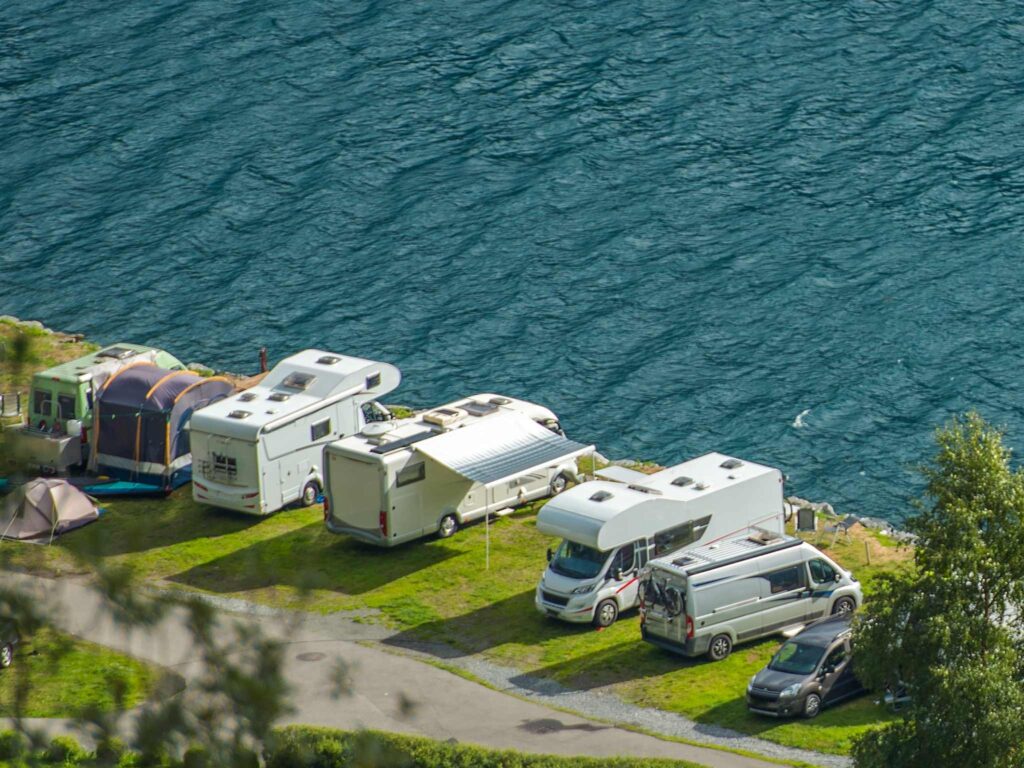
Another advantage to living in an RV in winter is flexibility. Since RVs are designed for mobility and can be driven to different locations, they offer the flexibility to explore new places and adapt to changing circumstances.
Living in an RV allows you to live in different climates, allowing you to escape the cold winter weather and enjoy milder temperatures in other parts of the country. For example, many people relocate to warmer areas such as Florida, Texas, or Arizona.
Since RVs are self-contained and come with their own power and water systems, they offer you the flexibility to live off-grid. This can give you a sense of independence and adventure, allowing you to explore remote areas and live closer to nature.
If you want to know the best states for full-time RVers, read this article.
If you’re considering living off-grid in your RV, read this article about preparing for dispersed camping.
Adventure

Part of the driver for RV living is the quest for adventure. Adventure is a significant advantage to living in an RV during winter.
Since RVs are designed for mobility and travel, they allow you to explore new places, meet new people, and embark on exciting adventures.
Living in an RV during winter allows you to experience the beauty and wonder of winter landscapes, from snow-covered mountains to frozen lakes and rivers.
RV living allows you to participate in outdoor winter activities such as skiing, snowshoeing, and ice fishing, providing unique opportunities for fun and adventure.
Living in an RV during winter allows you to take spontaneous trips and explore new locations, allowing you to follow your curiosity and satisfy your sense of adventure.
Minimalism
In this world of excess, many people are turning to a minimalistic lifestyle. Living in an RV can jumpstart your journey toward minimalism. Since RVs are relatively small and have limited storage space, they require you to live with less and prioritize what is truly essential.
This means that you may reduce clutter and simplify your life, which will help you feel more organized and focused. Additionally, living in an RV enables you to appreciate the simple pleasures in life, such as spending time in nature or connecting with loved ones, rather than being consumed by material possessions.
RVs are designed with features that help you live sustainably and minimize environmental impacts, such as composting toilets or solar panels. That way, you can live more consciously in a way that aligns with your values.
If you’d like to know more about different types of toilets, read this article I wrote.
Embracing Winter
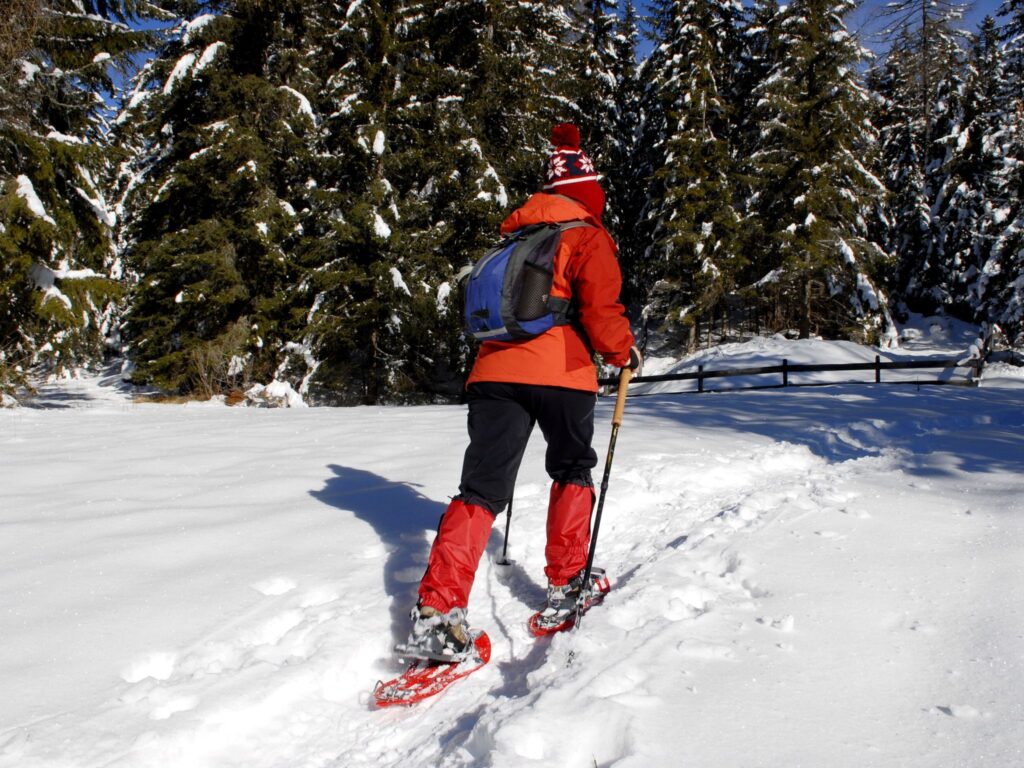
Some people enjoy the winter and want to experience it to the fullest. Living in an RV during winter allows you to enjoy outdoor winter activities like skiing, snowboarding, or snowshoeing. Some RVers take their winter journey to the next level and get out there to ice fish and snowmobile.
Challenges to Living in an RV in Winter
As you might imagine, there are some challenges associated with living in an RV during winter. Here, we’ll discuss these challenges. Then, we’ll talk about how to handle the challenges of living in an RV in winter.
Staying Warm
Staying warm in an RV during winter presents a challenge, as the lack of insulation leads to heat loss and chilly temperatures inside the RV.
Plumbing Issues
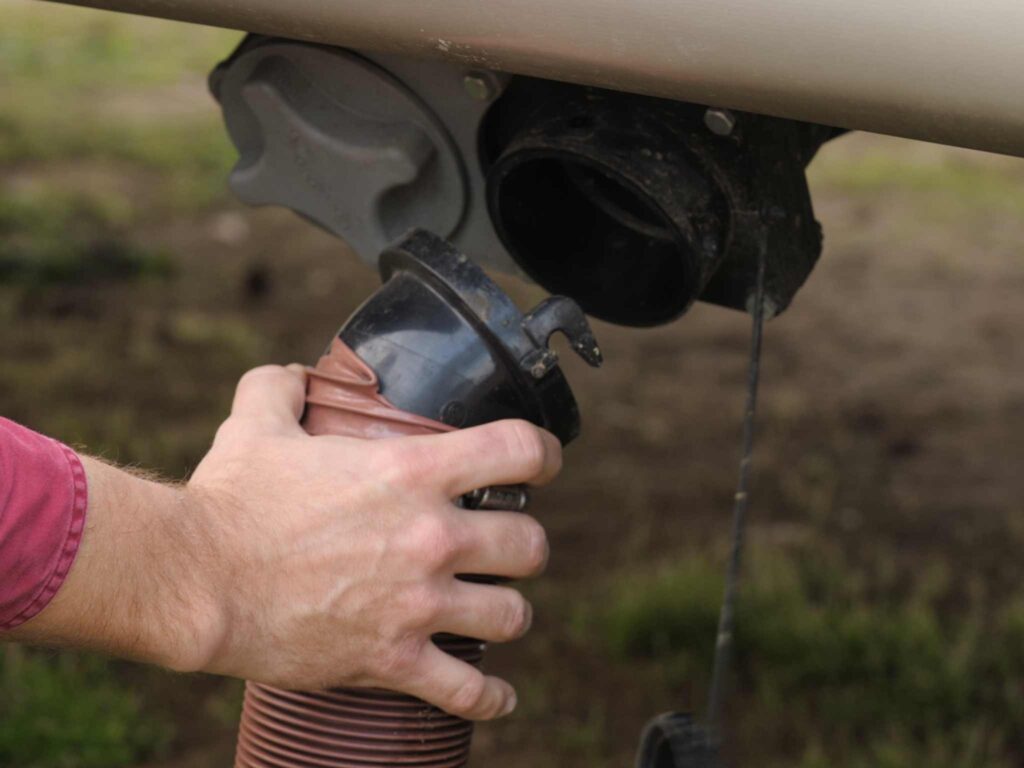
When temperatures drop, the water in your RV’s pipes can freeze and cause damage. This can lead to plumbing issues and costly repairs.
Limited Space
Living in an RV can be challenging due to the limited space available. This can be especially difficult during winter as you may need to store additional clothing and supplies to stay warm.
Maintenance
RVs require regular maintenance and upkeep, and this can be more challenging during winter when temperatures are low, and snow and ice can make it difficult to perform necessary tasks.
Winter Weather Hazards
Driving an RV in winter can be hazardous due to snow, ice, and other winter weather conditions. This can make it challenging to move from one location to another or to perform necessary errands and tasks.
Boredom and Isolation
Living in an RV during winter can be isolating, especially if you’re parked in a remote location or in an area where winter activities are limited. This can lead to boredom and a lack of social interaction.
Tips for Living in an RV in Winter
As promised, here are some tips for camping in an RV during the winter:
RV Selection
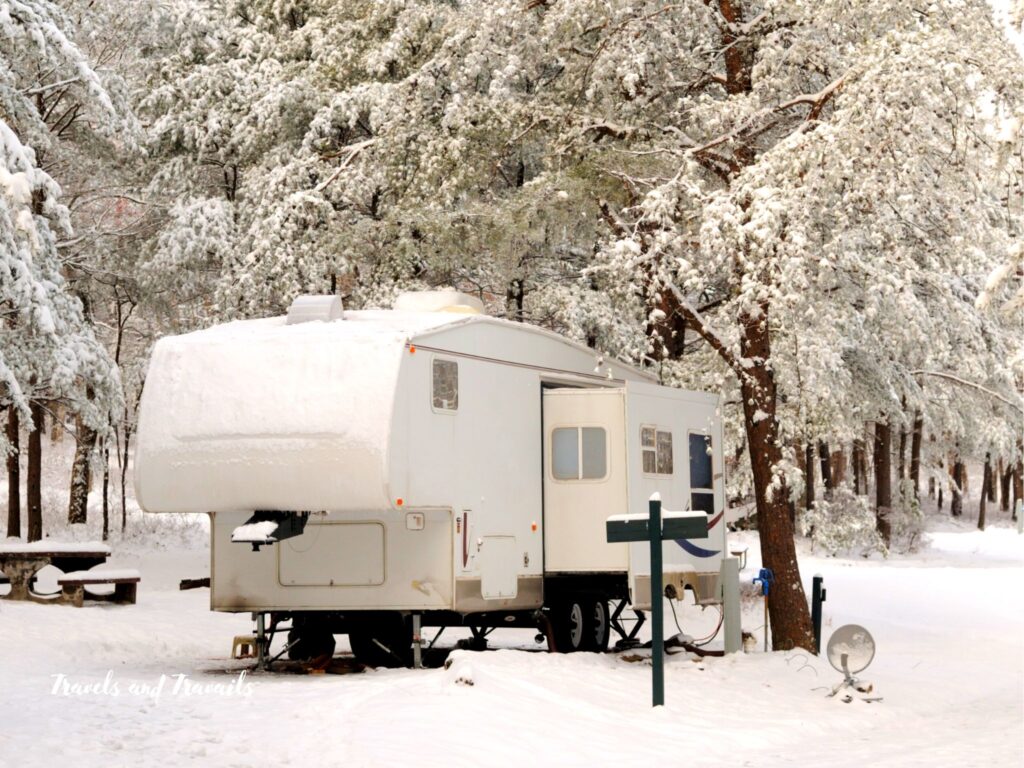
RV selection is the most important consideration because you want to ensure a comfortable and safe living space.
First, you should look for an RV with good insulation and a heating system to handle winter temperatures. Consider the RV’s R-value, which measures its insulation effectiveness, and look for models with high R-values to ensure maximum heat retention. You should also consider the type of heating system the RV uses, such as propane or electric, and make sure it’s adequate for winter conditions.
Look for an RV that is well-insulated and has double-pane windows. This will help to keep the heat inside and prevent the cold from seeping in.
Under-body insulation and heated tanks are critical components for ensuring your RV stays warm and functional in cold weather.
Under-body insulation is essential because it helps to prevent cold air from infiltrating the RV’s interior through the floor. It involves adding insulating material, such as spray foam or rigid foam board, to the underside of the RV’s flooring.
This insulation layer acts as a barrier, preventing cold air from getting in and warm air from escaping. Under-body insulation can significantly improve the RV’s overall insulation effectiveness and reduce heating costs by minimizing heat loss from the floor.
Heated tanks are also crucial for winter RV living, as they help prevent the RV’s water and plumbing systems from freezing. When temperatures drop below freezing, the water in the tanks and pipes can freeze and cause damage to the RV’s plumbing.
A heated tank system involves adding heating elements to the RV’s water tanks and pipes, keeping the water temperature above freezing and preventing any freezing-related damage. Some RVs come with heated tank systems pre-installed, while others may require retrofitting to add this feature.
Another consideration is the size of the RV. While smaller RVs may be easier to heat and more affordable, they can also feel cramped during extended stays. Larger RVs provide more space but may be harder to heat and require more fuel or electricity to keep warm.
Additionally, you should consider the RV’s water and plumbing systems, as these can be prone to freezing during winter. Look for RVs with heated water hoses, insulated water tanks, and pipes, and consider adding a skirting system to prevent cold air from getting under the RV.
Finally, consider your needs and lifestyle when selecting an RV for winter living. Do you plan to stay in one place or travel frequently? Will you be living alone or with others? Do you need space for storage, work, or hobbies? These factors can influence the type of RV you choose and how you set it up for winter living.
Staying Warm
Staying warm in an RV during winter can be a challenge, but with the right approach, you can create a cozy and comfortable living space that allows you to enjoy the beauty of the winter season. The key is to focus on insulation and heating, essential for keeping your RV warm in cold weather.
First, you should ensure that your RV has adequate insulation. This includes under-body, window, and door insulation, among other things. Insulating materials like thermal curtains, draft stoppers, and foam board insulation can help keep the warm air inside and the cold air outside. In addition, consider adding an area rug to help insulate the floor and provide a soft surface underfoot.
Next, you’ll want to ensure your RV’s heating system is up to the task. Consider using a combination of heating sources, such as a propane furnace, a portable electric heater, or a wood-burning stove, depending on your preferences and needs.
Make sure to keep your RV’s interior temperature above freezing, especially when you’re away from the RV or sleeping. It’s also important to keep the air circulating by using fans or opening windows periodically to prevent moisture buildup and promote air quality.
Finally, you should dress appropriately for the weather. Layers are essential, as they allow you to adjust your clothing to your changing temperature needs throughout the day.
Invest in warm and comfortable bedding, such as flannel sheets and down comforters, to ensure a good night’s sleep. And don’t forget about warm clothing for outdoor activities, such as insulated jackets, hats, and gloves.
Carbon Monoxide
It’s vital to ensure that your RV’s exhaust system is working properly and to never run your engine or propane heater for an extended period without proper ventilation. Carbon monoxide poisoning can be deadly.
RV Plumbing


Keeping the plumbing from freezing is one of the most important aspects of winter RV living. When the temperature drops below freezing, the water in the pipes can freeze and cause significant damage to your RV’s plumbing system. To avoid this, you must take steps to prevent your pipes from freezing.
First, you should ensure your RV’s pipes are adequately insulated. This includes the hot and cold water pipes and any exposed areas where the lines may be vulnerable to freezing. You can use foam pipe insulation, heat tape, or even towels and blankets to wrap the pipes and keep them warm.
Next, you’ll want to ensure that your RV’s water tank and pipes are heated. Many RVs come equipped with heated tanks and lines, but you may need to retrofit your RV with a heating system if yours doesn’t. You can use specialized heating pads or blankets designed to keep your water tank and pipes warm and prevent freezing.
A heated water hose will keep water flowing into your RV to temperatures of -20 degrees.
It’s also important to keep your RV’s interior temperature above freezing, even when you’re away from the RV or sleeping. You can do this by using a combination of heating sources, such as a propane furnace, a portable electric heater, or a wood-burning stove. Keeping your RV warm will prevent the water in your pipes from freezing and causing damage.
In addition, you should be vigilant about draining your RV’s water system whenever you’re not using it, especially if you’re planning to be away from your RV for an extended period. This will prevent any residual water from freezing and causing damage.
Use skirting around your RV to insulate the RV, hoses, and tanks from the cold. You can also use insulating pillows in the vents and fans of your RV.
Ventilation
It’s important to keep the RV well-ventilated to prevent condensation and the buildup of carbon monoxide. Open a window or roof vent to allow fresh air to circulate.
Condensation can be a problem in cold weather, so keep your RV well-ventilated to prevent moisture buildup. Use a dehumidifier if necessary.
Conclusion
Living in an RV during winter can be a rewarding experience, offering a sense of adventure, flexibility, and minimalism. However, it also presents challenges, such as staying warm and preventing the plumbing from freezing. By taking the right steps, such as adequately insulating your RV, using a combination of heating sources, and keeping your plumbing system heated and well-maintained, you can create a comfortable and safe living space to enjoy the beauty of winter from the comfort of your RV.
